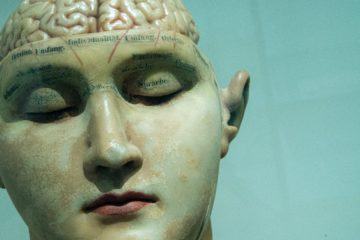 Joe Gough in Aeon (Photo by David Matos on Unsplash):
Joe Gough in Aeon (Photo by David Matos on Unsplash):
Someone’s probably told you before that something you thought, felt or feared was ‘all in your mind’. I’m here to tell you something else: there’s no such thing as the mind and nothing is mental. I call this the ‘no mind thesis’. The no-mind thesis is entirely compatible with the idea that people are conscious, and that they think, feel, believe, desire and so on. What it’s not compatible with is the notion that being conscious, thinking, feeling, believing, desiring and so on are mental, part of the mind, or done by the mind.
The no-mind thesis doesn’t mean that people are ‘merely bodies’. Instead, it means that, when faced with a whole person, we shouldn’t think that they can be divided into a ‘mind’ and a ‘body’, or that their properties can be neatly carved up between the ‘mental’ and the ‘non-mental’. It’s notable that Homeric Greek lacks terms that can be consistently translated as ‘mind’ and ‘body’. In Homer, we find a view of people as a coherent collection of communicating parts – ‘the spirit inside my breast drives me’; ‘my legs and arms are willing’. A similar view of human beings, as a big bundle of overlapping, intelligent systems in near-constant communication, is increasingly defended in cognitive science and biology.
The terms mind and mental are used in so many ways and have such a chequered history that they carry more baggage than meaning. Ideas of the mind and the mental are simultaneously ambiguous and misleading, especially in various important areas of science and medicine. When people talk of ‘the mind’ and ‘the mental’, the no-mind thesis doesn’t deny that they’re talking about something – on the contrary, they’re often talking about too many things at once. Sometimes, when speaking of ‘the mind’, people really mean agency; other times, cognition; still others, consciousness; some uses of ‘mental’ really mean psychiatric; others psychological; others still immaterial; and yet others, something else.
This conceptual blurriness is fatal to the usefulness of the idea of ‘the mind’.
More here.
